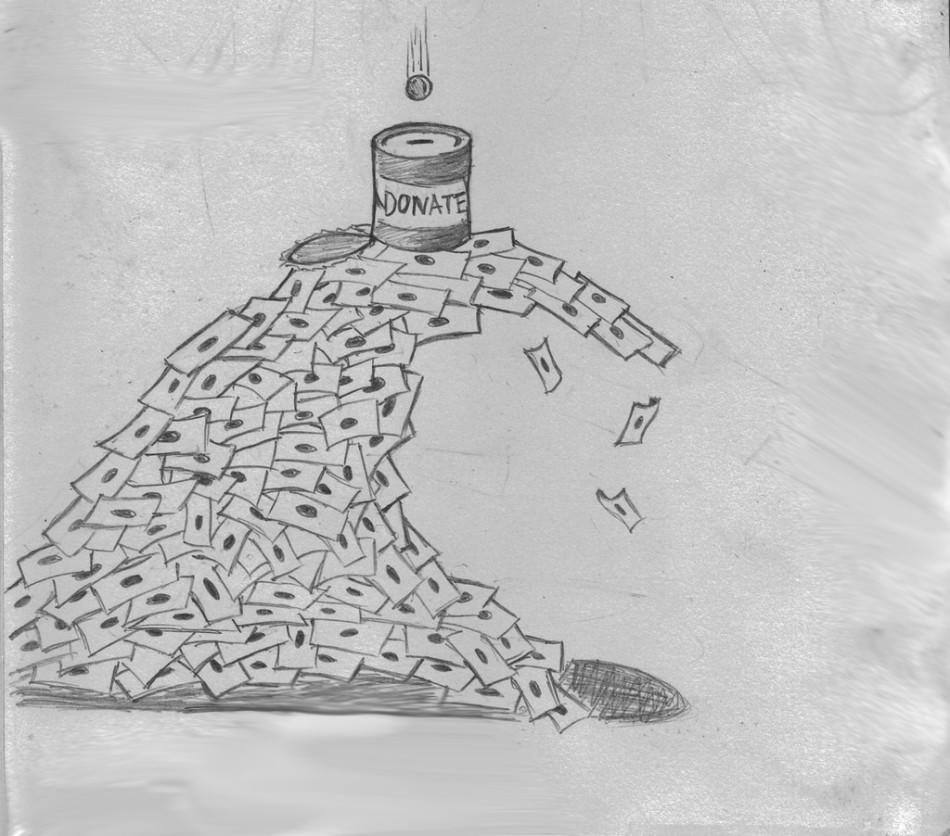Money talks louder after supreme court decision
April 16, 2014
The world of political campaign financing has changed with the striking of the US Supreme Court gavel.
In the recent ruling of McCutcheon v. Federal Election Commission, the Supreme Court ruled that the regulation of individual aggregate contribution to political parties and candidates in election cycles was unconstitutional.
The court decided in a split 5-4 decision that the limits on campaign donations by an individual impeded their ability to freely express themselves politically under the First Amendment.
Previously, the cap for individual contribution was at $123,200, with $2,600 being the maximum amount that could be contributed directly to a limited 18 candidates per cycle.
Like Citizens United v. FEC, this case breaks precedent from the ruling in the 1976 Buckley v. Valeo case, which established limits on the contribution powers by individuals.
While the $2,600 individual candidate donation cap will continue, contributors are now free to donate to however many candidates they wish, with no overall cap on their spending to each campaign they wish to contribute to.
The conservative bloc of the court, being led by Chief Justice Roberts, contended that contribution is a form of the first amendment right to the freedom of speech.
“Money in politics may at times seem repugnant to some, but so, too, does much of what the First Amendment vigorously protects.” he said. “If the First Amendment protects flag burning, funeral protests and Nazi parades — despite the profound offense such spectacles cause — it surely protects political campaign speech despite popular opposition”.
Bradley A. Smith, an American legal scholar, argued in Time Magazine that the ruling strengthens the first amendment.
“If nothing else, the real takeaway from today’s opinion is that federal and state governments are not permitted to squelch First Amendment rights based on a fear that monsters are under the bed,” he said.
However, Justice Breyer, in the liberal and dissenting opinion of the court, maintained that the decision, “fails to recognize the difference between influence resting upon public opinion and influence bought by money alone.”
Ted Blair, a professor of political science at DVC, commented that the issue of governance in the country now has the potential to be unfairly influenced.
“If you define governing as participation in politics, this works in the opposite direction,” he said. “This is going to favor a very few people with great wealth, who will be able to influence the political process.”
The results of the Supreme Court’s ruling will most likely be played out in the mid-term election this November. With the removal of aggregate caps, this election will most likely see record-breaking levels of contributions to candidates and parties.
Money is the life blood of any political venture, for it allows for those candidates who wish to win to showcase their platforms and achievements. Yet when massive spending is allowed within the election cycle, candidates who might appeal to the people are forced out because they do not have the investors.
Privatization of politics is a step in the wrong direction. If we allow our politicians to be bought and sold as commodities for special interests and the interests of the select few who can afford it, then therein lays a great problem.
Our representatives will no longer be accountable to the people, but to the few who bankroll campaigns. They can be hired and fired, and by those who have only their interests in mind, not the collective society.
The idea that money is a form of speech is an ethical question that all people must address. But when you meet someone who is insistent on their point and will not allow others to contribute, does that not strike you as obnoxious and unfair to the conversation?









































































